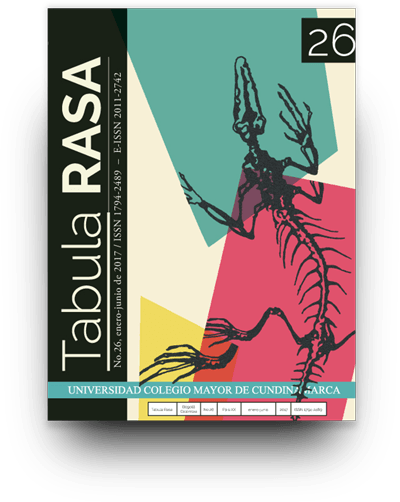Contemporary indigenous critical theory in the global north.
Teoría crítica indígena contemporánea en el norte global.
Show authors biography
Since February 2016, hundreds of people among environmental activists, Sioux Indians, New Zealand Indians, and Latin America, began to congregate in the Sioux Nation Standing Rock Sioux Reservation (located in the State of North Dakota in the States United), with the purpose of demonstrating the violation of its territory. National media claimed that this had been one of the largest indigenous protests in the last hundred years. Indeed, the construction of the Dakota Access Pipeline pipeline (2,700 km), advanced by the company Energy Transfer Partners puts in danger, due to possible oil spills, the water sources that supply the Sioux people. The development of this infrastructure project clearly violates the agreements of the Fort Laramie Treaty of the Sioux Nation. It would be impossible to imagine an alternative route, as this would affect the water sources of the white urban suburbs, specifically the city of Bismarck located in North Dakota.
Article visits 123 | PDF visits 61
Downloads
- Anzaldúa, G. (2007) Borderlands/La Frontera. San Francisco: Aunt lute Books .
- Blaser, M. (2017). On the Properly Political (disposition for the) Anthropocene. Manuscrito.
- Castellanos, M. B., Gutíerrez, L., Aldama, A. (eds.). (2012). Comparative Indigeneities of the Americas: Toward a Hemispheric Approach. Phoenix: University of Arizona Press.
- Coulthard, S.G. (2014). Red Skin, White Masks. Rejecting the Colonial Politics of Recognition. Minnesota: University of Minnesota Press.
- Turner, D. (2006). This is not a peace pipe: Towards a Critical Indigenous Philosophy. Toronto: University of Toronto Press.
- Deloria, Vine, Jr. (1999). Spirit and Reason. The Vine Deloria, Jr. reader. Colorado: Fulcrum Pub.
- Little, W. (2012). Aiqija, Transnational migrants, telephones and Nimab al. Castellanos et. al. (eds.). Comparative indigeneities of the Americas. Toward a hemispheric approach. Phoenix: fte University of Arizona.
- Miller, S.A., In, J.R. (eds.). (2011). Native Historians Write Back: Decolonizing American Indian History. Texas: Texas Tech University Press.
- Ramirez, R. (2007). Native Hubs: Culture, Community, and Belonging in Silicon Valley and Beyond. Durham: Duke University Press.
- Reséndez, A. (2016). The Other Slavery. The Uncovered Story of Indian Enslavement in America. Boston: Houghton Mifflin Harcourt.
- Tayac, G. (2009). IndiVisible: African-Native American Lives in the Americas. Smithsonian: NMAI.
- Tallbear, K. (2013). Native American DNA. Tribal Belonging and the False Promise of Genetic Science. Minnesota: University of Minnesota Press.
- Taiaiake, A. (1999). Peace, Power, Righteousness: an Indigenous Manifesto. Oxford: Oxford University Press.
- Waters, A. (2004). American Indian Thought. Oxford: Blackwell Publishing.
- Zepeda, S. (2014). Queer Xicana Indígena Cultural Production: Remembering ftrough Oral and Visual Storytelling. Decolonization: Indigeneity, Education & Society. 3(1): 119– 141.




